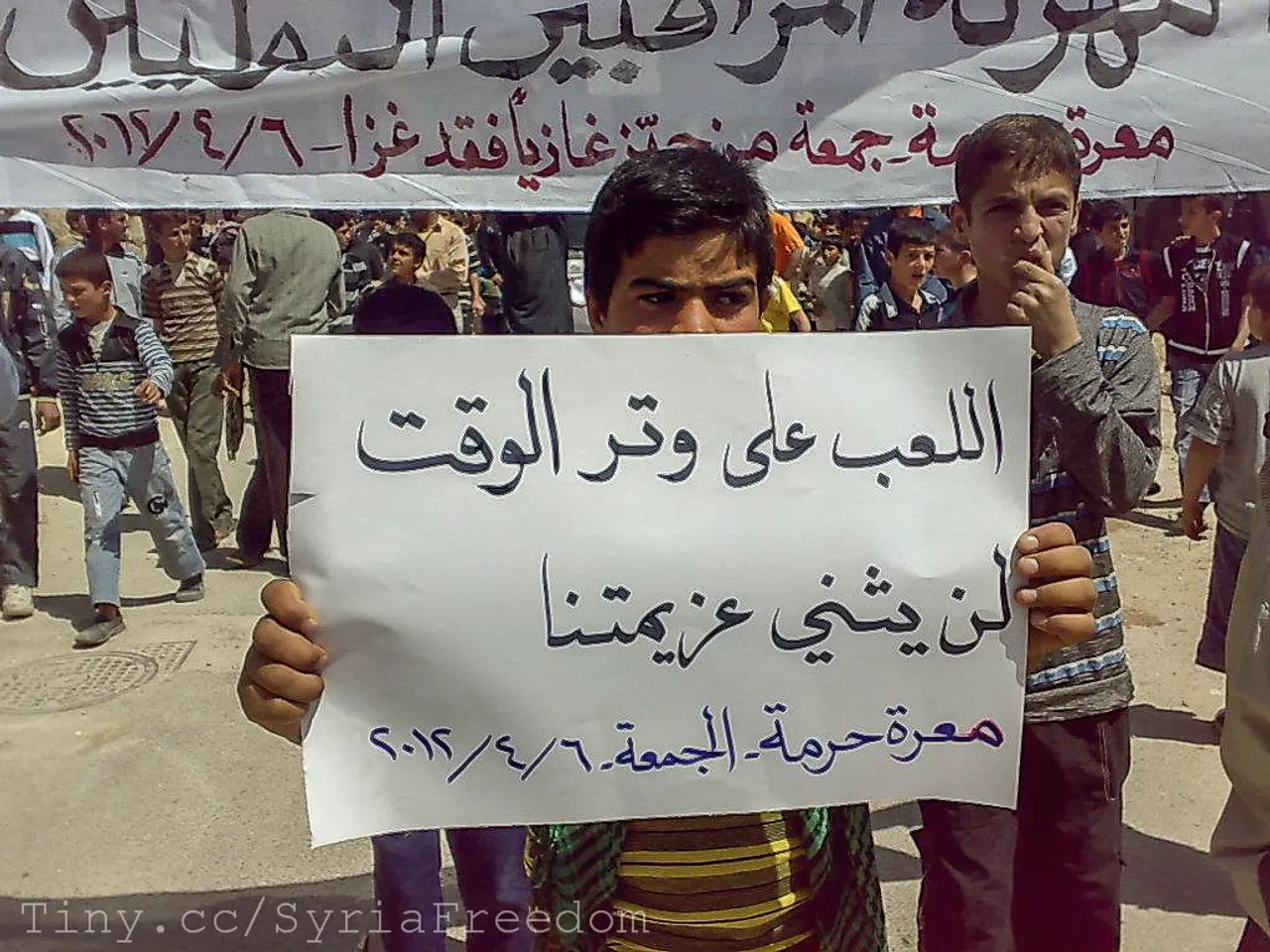Civil discontent escalates in France, with numerous demonstrations and work stoppages confronting President Macron and his newly appointed prime minister
In the heart of France, a wave of discontent has swept through the nation, as thousands of citizens took to the streets to voice their opposition against President Emmanuel Macron's financial policies. The demonstrations, which took place in cities across France, including Paris, Nantes, Rennes, and Lyon, were part of a day of upheaval aimed at pressuring the new Prime Minister, Sébastien Lecornu, and President Macron to reconsider their plans for budget cuts.
Jean Pierre Mercier, an automobile factory union representative, was one of many who argued that workers have been paying for the rich and the capitalists for decades and should not be asked to pay the debt again. This sentiment was echoed by Pierre Courois, a retired civil servant, who argued that France's deficit should be addressed by finding money where there is money, rather than cutting public services.
The opposition against Macron's financial policies includes parties from across the political spectrum such as the far-right Rassemblement National, the socialists, the Greens, the communists, and the left-radical La France Insoumise. These groups have opposed austerity measures and demanded new elections and Macron's resignation.
The day saw sporadic clashes between protesters and police, with Paris police using tear gas to disperse a before-dawn blockade of a bus depot and deploying in force, backed by armored vehicles and firing more gas, at the afternoon march in the capital. Scattered violence occurred during the protests, but estimates from the CGT, one of the unions that called the strikes and demonstrations, were double those of police, reporting more than 1 million strikers and protesters nationwide.
Despite the disruptions, Paris Metro operator reported fewer disruptions than anticipated during rush hour, but traffic largely stopped outside those hours except on three driverless automated lines. The French national rail company SNCF expected "a few disruptions" on high-speed trains to France and Europe, but most will run.
Among the protesters, Aya Touré, a hospital nurse, expressed her frustration with the government, saying they have no understanding of real-life issues. Protesters carried placards reading "Tax the rich" and expressed concerns about mounting poverty, sharpening inequality, and difficulties in making ends meet.
Nathalie Laurent, an office worker, expressed frustration with the disruptions to daily life caused by the protests. However, Fabien Villedieu, a leader of the SUD-Rail train workers union, called for an end to the government's austerity plan and for the rich to pay for the crisis.
The day's events have given Macron's critics a sense of momentum, with the collapse of successive governments seeking to push through savings. The "Block Everything" campaign, which developed online before taking to the streets, added to the climate of crisis. The new Prime Minister, Sébastien Lecornu, has taken steps such as trimming lifetime benefits for former government ministers and scrapping proposals to eliminate public holidays, but his close relationship with Macron has made him a target for protesters.
Juliette Martin, a student, criticized Lecornu, saying he would follow Macron's line and bring no change. As the dust settles, it remains to be seen whether the government will heed the calls of the protesters and reconsider its financial policies.





